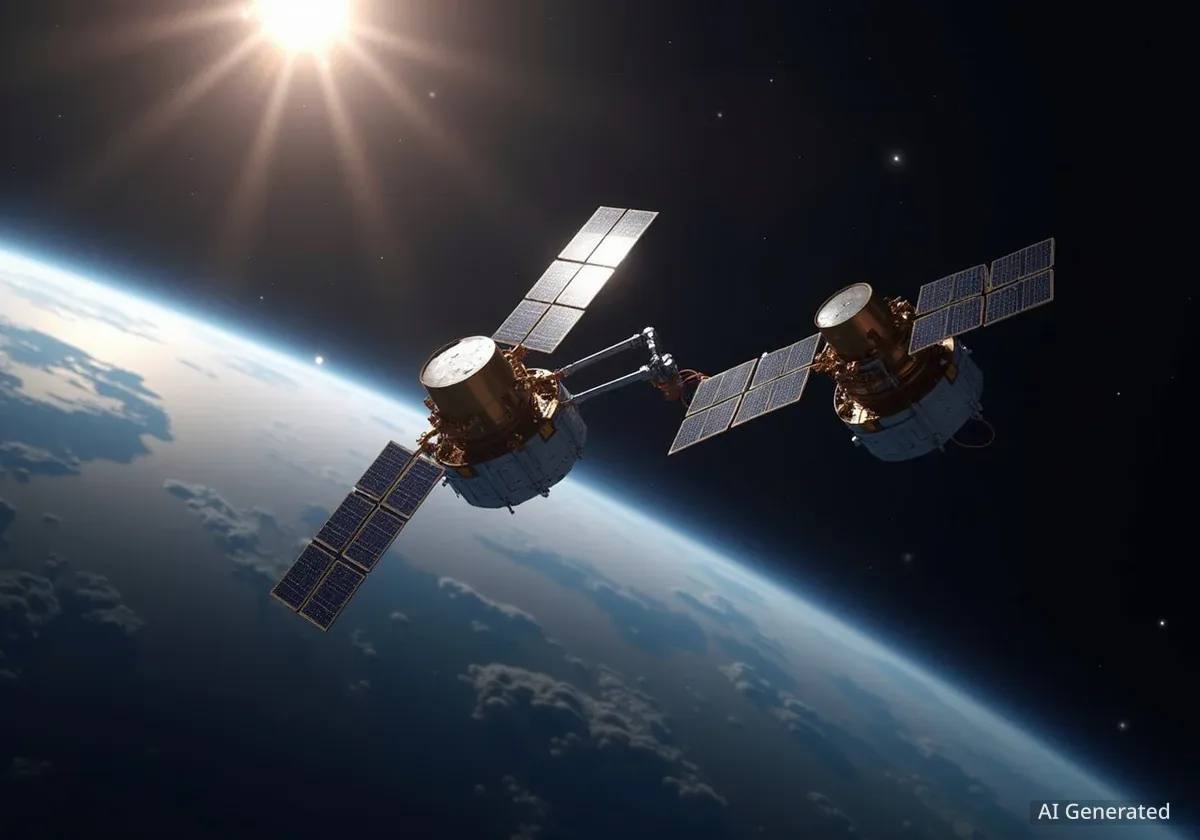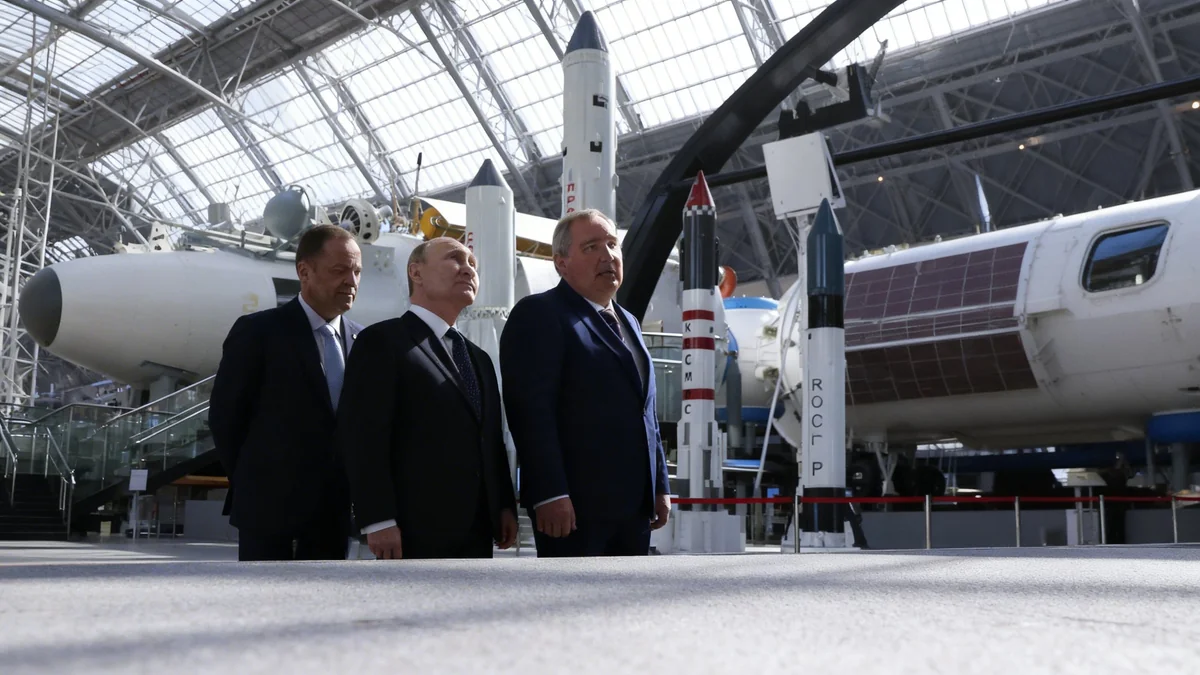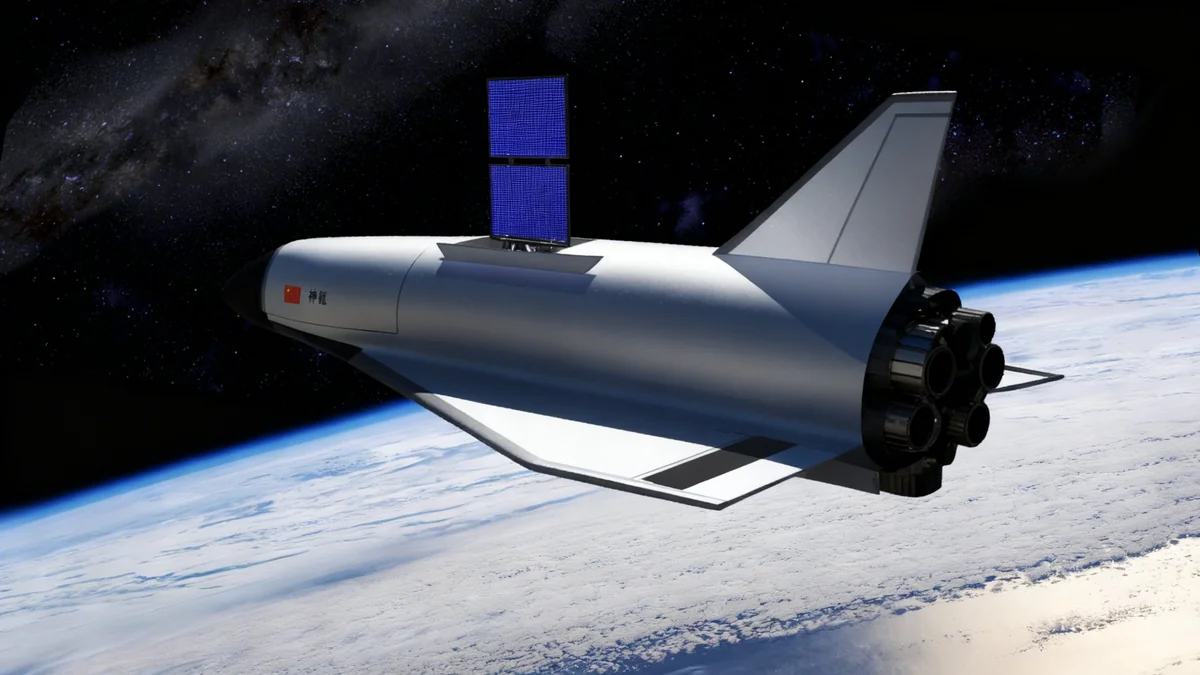The United States and the United Kingdom have successfully completed a joint military operation in space, where a U.S. satellite was maneuvered to inspect a U.K. satellite. The mission confirmed the British satellite was functioning correctly and marked a significant milestone in allied space cooperation.
Conducted under the framework of Multinational Force - Operation OLYMPIC DEFENDER (MNF-OOD), the exercise demonstrated a new level of combined capability and interoperability between the two nations in the increasingly important space domain.
Key Takeaways
- A U.S. satellite performed a Rendezvous Proximity Operation (RPO) to inspect a U.K. satellite in orbit.
- The operation successfully confirmed the U.K. satellite was functioning as expected.
- This was the first operation of its kind for U.K. Space Command, representing a major step in its capabilities.
- The mission was executed under the U.S.-led Operation OLYMPIC DEFENDER, a coalition for unified space operations.
A Landmark Orbital Maneuver
The core of the mission was a sophisticated procedure known as a Rendezvous Proximity Operation (RPO). This involved carefully repositioning a U.S. satellite to approach and visually inspect a satellite belonging to the United Kingdom while both were in orbit.
The primary goal was to verify the health and status of the British asset. According to officials, the inspection confirmed the satellite's nominal function, providing valuable data and assurance without the need for ground-based diagnostics alone. This successful test validates the complex command-and-control systems required for such precise maneuvers.
First for UK Space Command
For the United Kingdom, this operation represented a major advancement. Major General Paul Tedman, the commander of U.K. Space Command, described the event as a significant achievement.
"This operation was a first of its kind for U.K. Space Command and represents a significant increase in operational capability," said Major General Tedman.
He emphasized the seamless execution with U.S. Space Command and expressed pride in the rapid progress being made within the multinational framework. "We are now, with our allies, conducting advanced orbital operations to protect and defend our shared national and military interests in space," he added.
What is Operation OLYMPIC DEFENDER?
Operation OLYMPIC DEFENDER is a multinational initiative led by the U.S. Space Command (USSPACECOM). Its purpose is to unify and synchronize space operations among close allies to optimize resources, enhance mission readiness, and deter hostile acts in space. The United Kingdom is a founding participant in this coalition.
Strengthening Allied Interoperability
A key objective of the joint mission was to prove that U.S. and U.K. space systems and personnel can work together seamlessly. Officials from both nations highlighted the successful validation of this interoperability as crucial for collective defense.
Lt. Gen. Douglas Schiess, commander of U.S. Space Forces-Space, commented on the strategic importance of the coordinated maneuver.
"This coordinated maneuver between two allies validated the interoperability that's foundational to our collective defense," stated Lt. Gen. Schiess. "The confirmation of the MNF's combined military might on-orbit delivers a credible deterrent in the increasingly contested space domain."
This achievement is not an isolated event but the result of years of sustained security cooperation, joint exercises, and shared development within the MNF-OOD framework.
A Congested Domain
There are currently thousands of active satellites orbiting Earth, with numbers growing rapidly due to commercial and government launches. This congestion increases the need for accurate space situational awareness to prevent collisions and monitor activities. Allied cooperation provides a broader and more resilient view of the orbital environment.
A Unified Front in a Contested Domain
The space domain is no longer seen as a purely scientific or commercial arena. Military leaders increasingly refer to it as a contested environment, where the ability to operate freely is not guaranteed. Multinational partnerships are viewed as a critical strategic advantage in this context.
By combining resources and expertise, allied nations can achieve greater situational awareness and ensure responsible behavior in orbit. These joint operations are designed to deter aggression and demonstrate a readiness to protect shared assets.
The Warfighting Advantage
General Stephen Whiting, the commander of USSPACECOM and the Multinational Force, framed the successful operation in terms of military readiness and strategic advantage.
"The success of this multidomain operation represents the warfighting advantage realized by employing our capabilities and expertise as one unified team," said Gen. Whiting.
He further noted that while adversaries might try to replicate the technical aspects of such cooperation, the strength of the alliance is based on shared values and a mutual commitment. "Our partnerships are uniquely defined by not only the mutual goal of deterring aggression, but a shared pledge to fight and win shoulder-to-shoulder, if necessary," he concluded. This underscores the deep level of trust and integration the mission aimed to reinforce.





